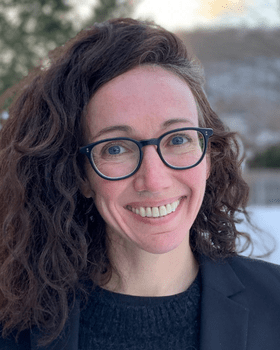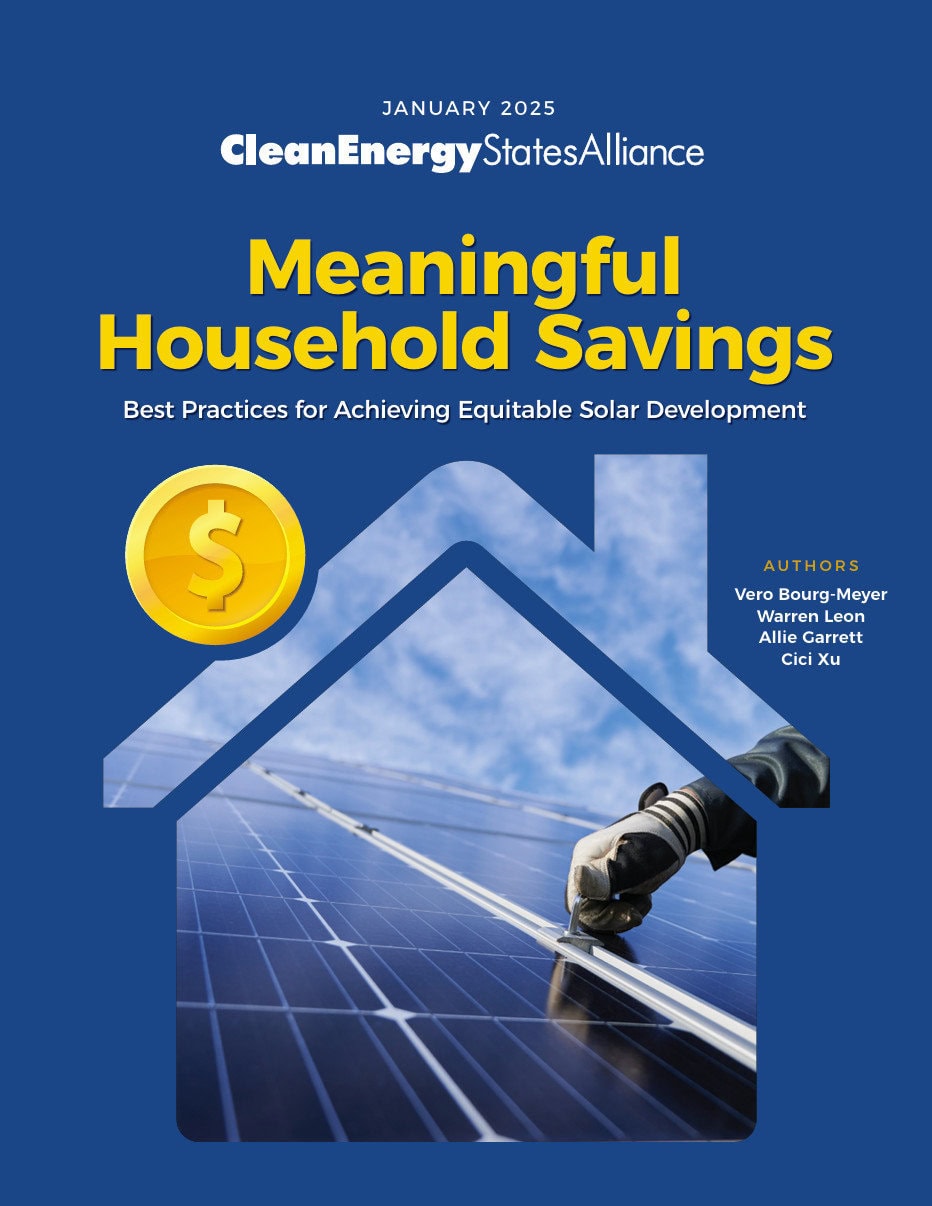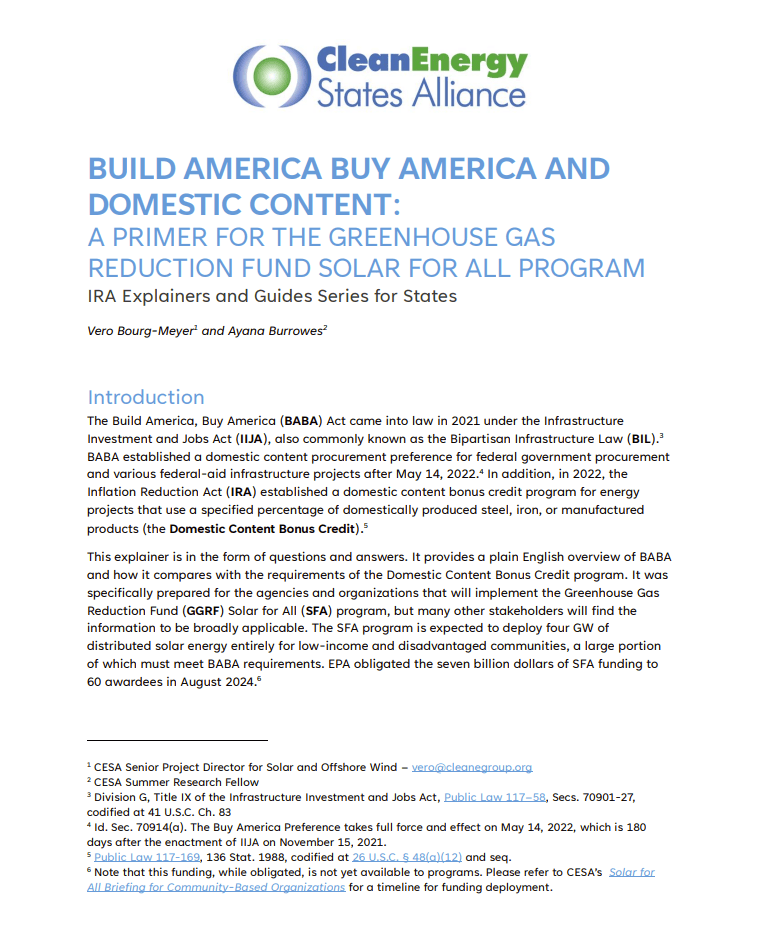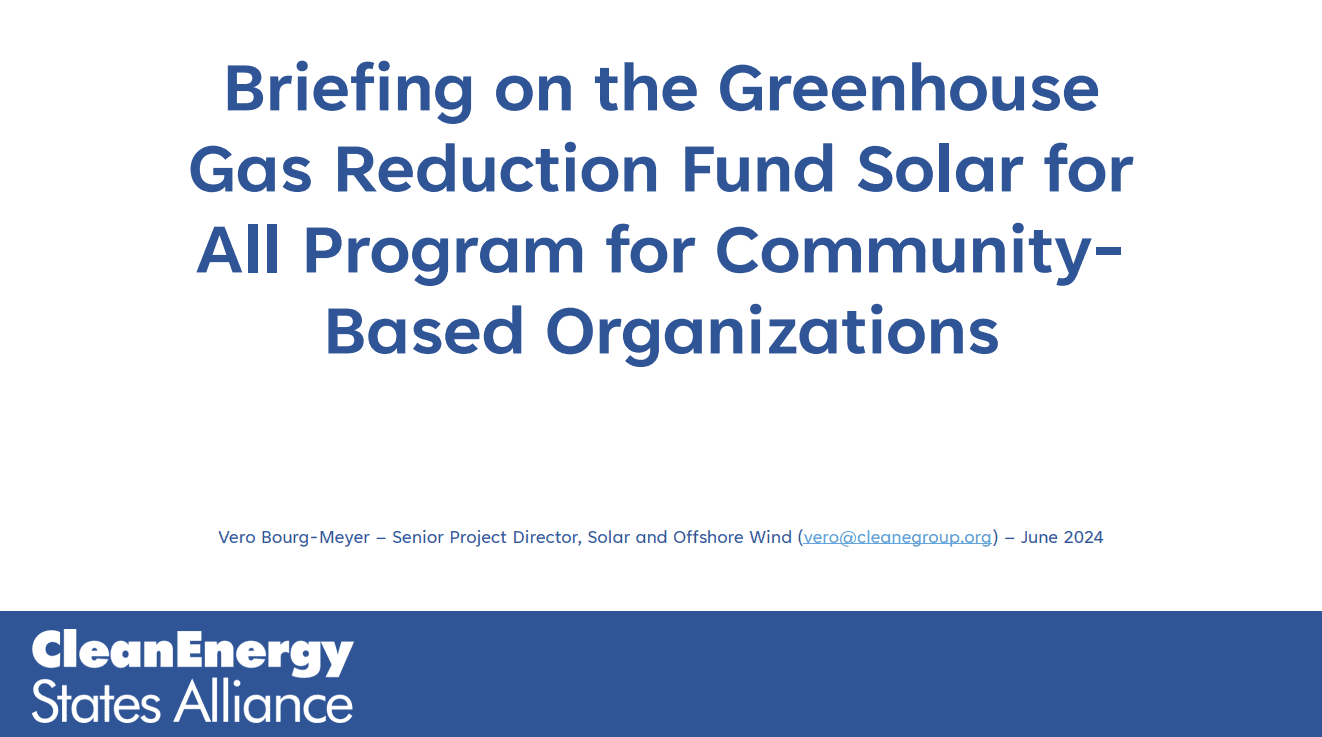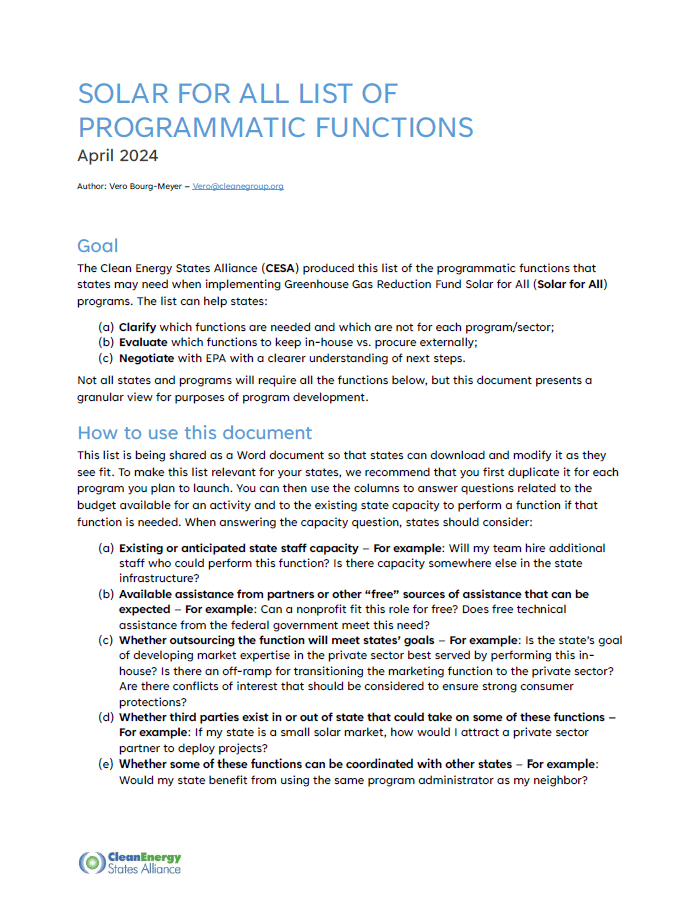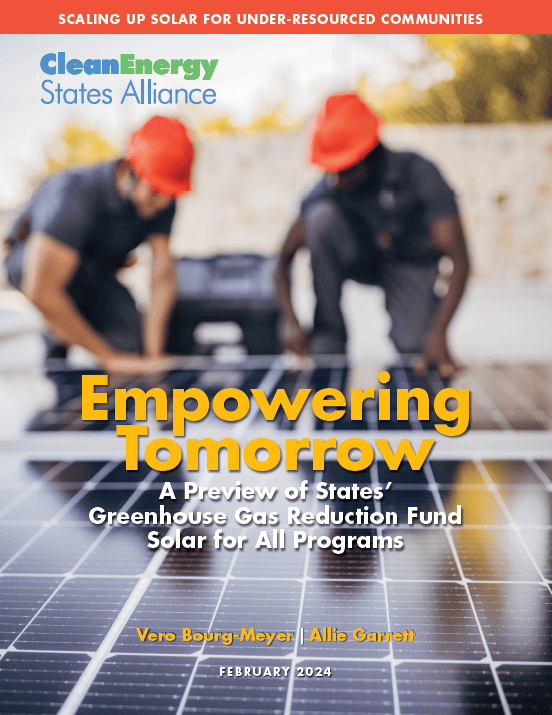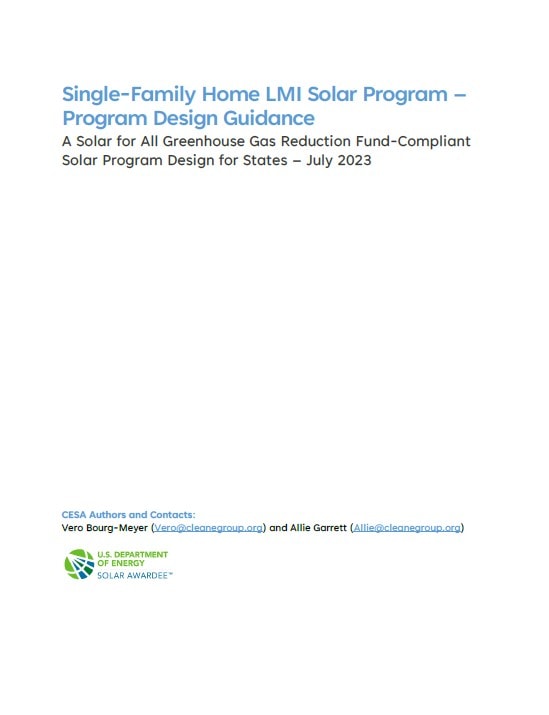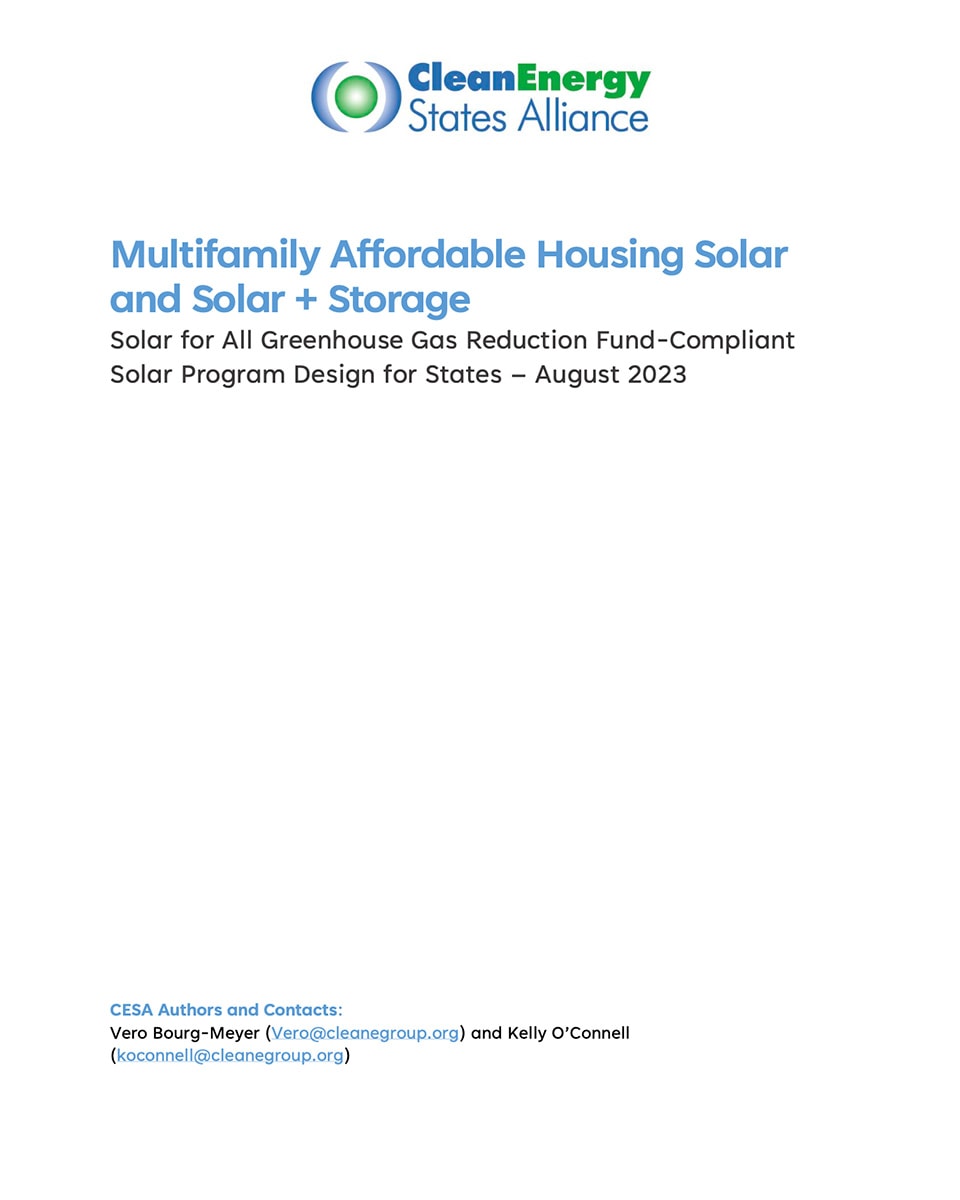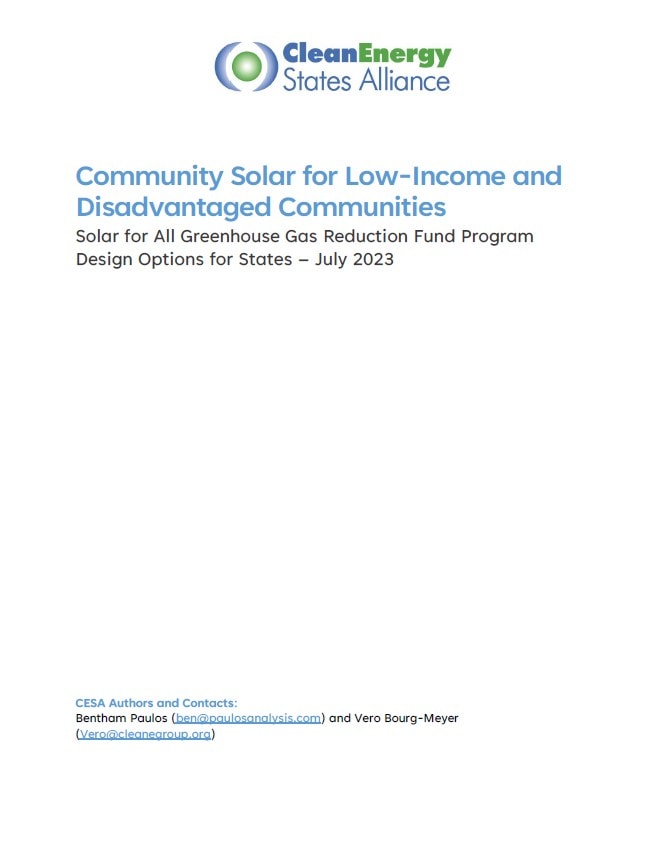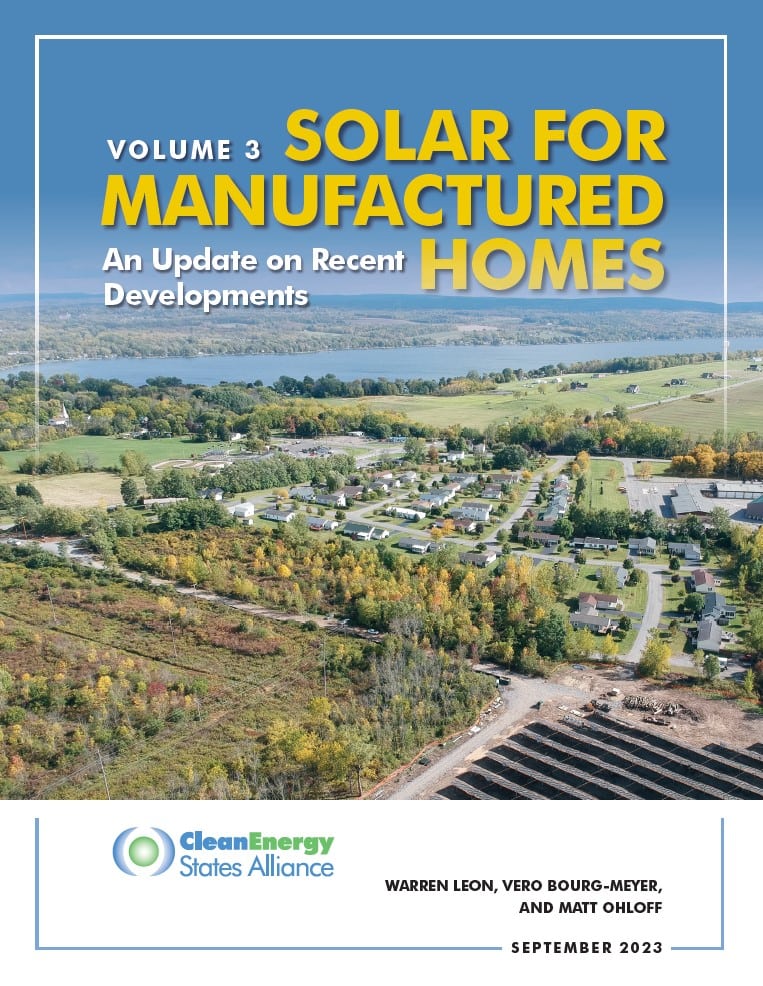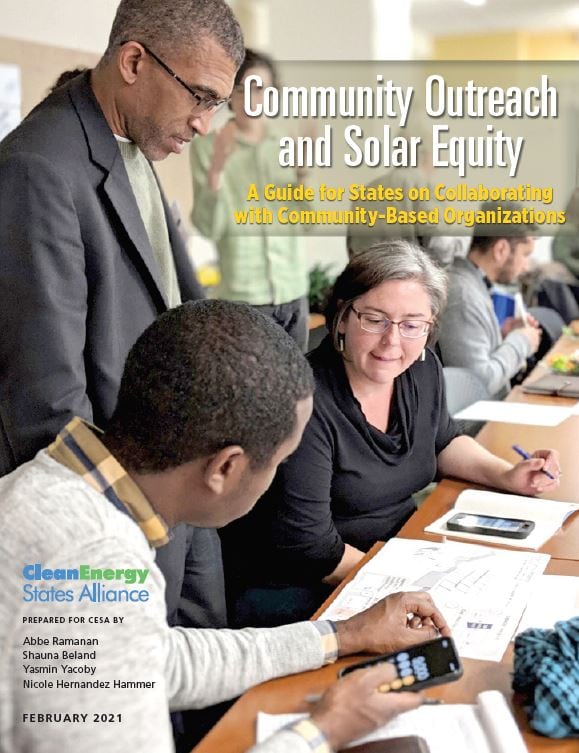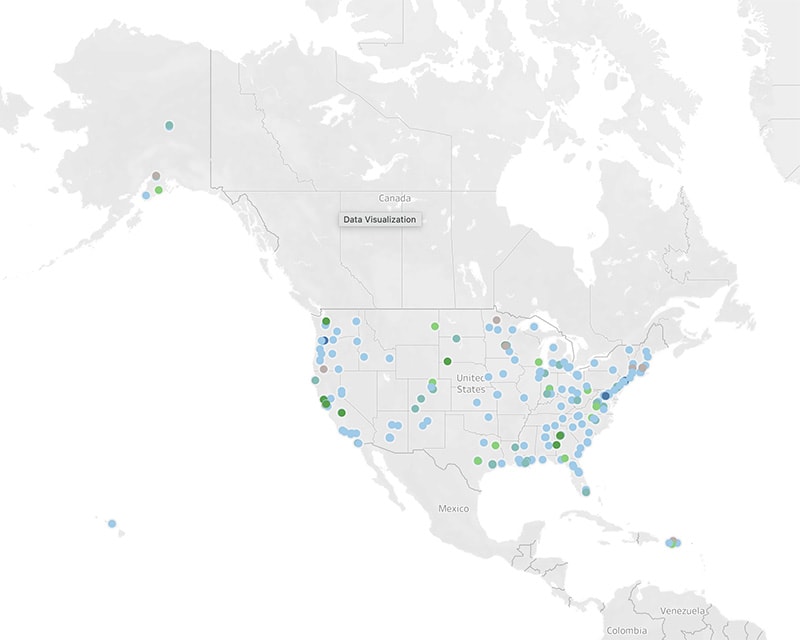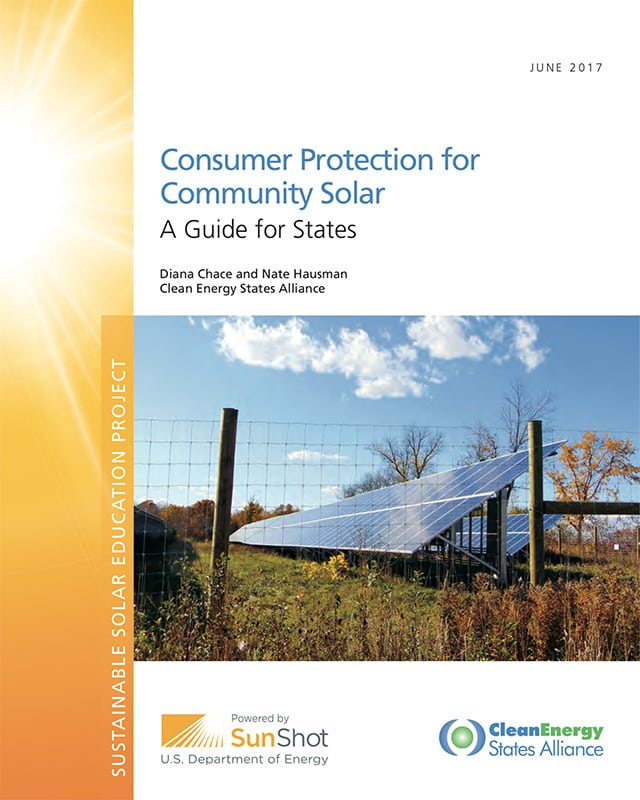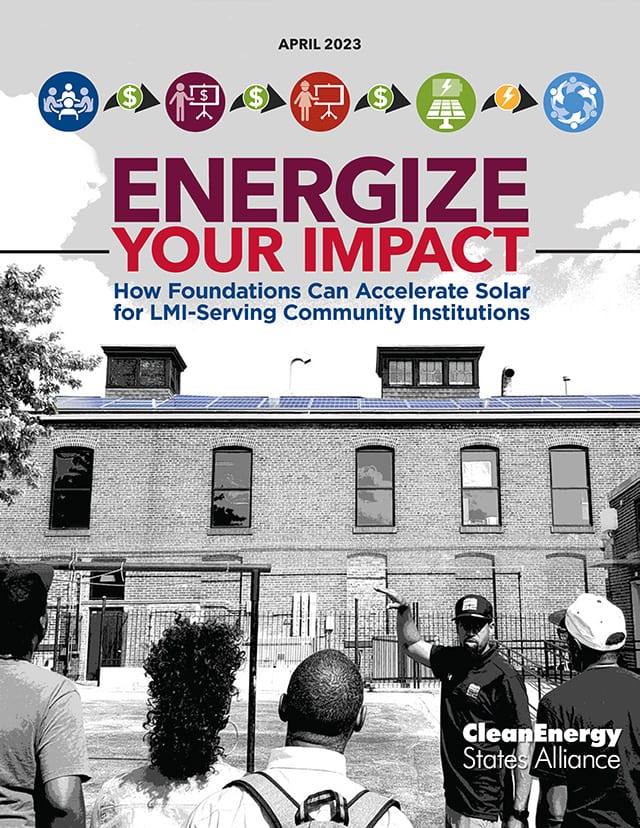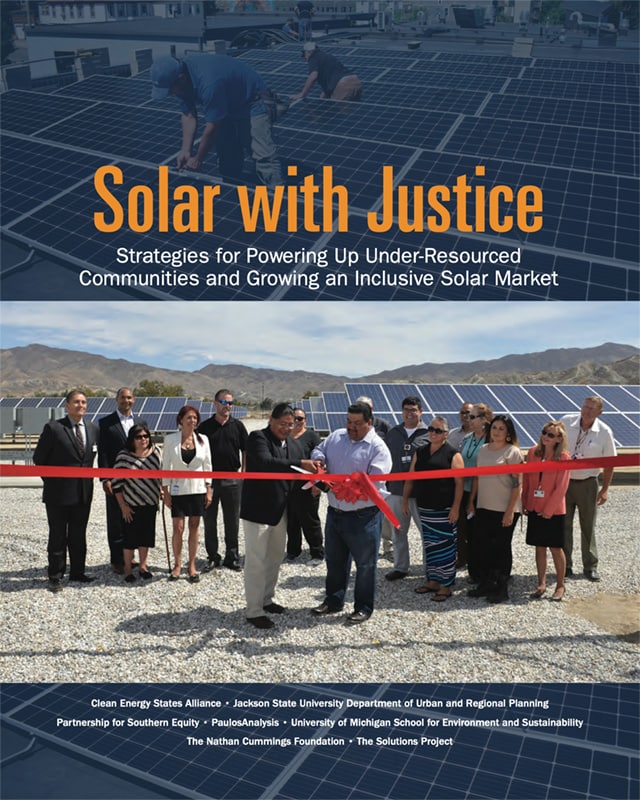Project Menu
Solar for All

Deploying Greenhouse Gas Reduction Fund Solar for All funds to communities effectively and efficiently within five years of the U.S. Environmental Protection Agency (EPA)’s awards to states will require sustained and strategic collaboration across the country. CESA’s Solar for All team actively supports grantees nationwide through a portfolio of activities and resources, coordinated with federal agencies, national labs, and other national nonprofits.
Solar for All (SFA) is a competitive grants program administered by EPA. SFA provides grantees, including states, nonprofits, and tribes, with $7 billion to expand solar access to low-income households between 2024 and 2029. Building on over a decade of expertise in LMI solar, including the DOE-funded Scaling Up Solar project, CESA assisted 40+ states in applying to the SFA competition.
Since April 2024, CESA expanded its network and serves as the connective tissue among its network of over 50 grantees, regardless of CESA membership, ensuring they are well-informed, bringing them together several times per week for discussions, and sharing best practices and resources to support program design and implementation.
CESA convenes the Solar for All (SFA) network weekly, bi-weekly, or monthly, depending on the topic, as requested by the national SFA grantees network. These convenings accelerate learning and program deployment across the network about fundamental program features like savings, subsidy structures, federal payment processes, Davis Bacon compliance, consumer protection, approaches to operation and maintenance, and much more.
CESA publishes a monthly calendar of convenings and meetings available to SFA grantees only. Currently, CESA’s groups include: all-grantees office hours, onboarding meetings for new hires of SFA grantees, the tribal partnerships working group, the multistate grantee coordination working group, the workplan analysis support group, the third-party ownership working group, the direct pay working group, join procurements discussions, the community solar opportunity states working group, the SFA reporting working group, quality assurance managers coordination meetings, and the terms and conditions compliance working group. This list changes over time, based on needs and requests.
These meetings are reserved to Solar for All grantees only and are not open to the public or recorded. Private sector consultants are not allowed in the meetings, and AI tools are not authorized.
To be made aware of future convenings, Solar for All grantees can join CESA’s SFA grantee-only mailing list by emailing Hanna ([email protected]). Additional and more targeted working groups will continue to be developed as implementation work gets under way.
In addition, some grantees may benefit from joining the National Community Solar Partnership+, including the Solar+Storage Monetization Working Group and the Defining, Achieving, and Verifying Savings Working Group. To learn more, please email Hanna.
Office hours: CESA Solar for All office hours are held every Wednesday, from 3 to 4:30 pm ET.
- What are CESA office hours? CESA office hours are an open line of communication among Solar for All grantees. Sometimes CESA staff may have answers for you, but often the value of office hours will be talking to other grantees, including states and nonprofits, sharing ideas, working through a problem together, and exchanging information gathered within our respective information silos and across program officers.
- What do we talk about in these meetings? There is no agenda. All Solar for All topics are welcome, from large program design strategies to nitty-gritty details of budgets or navigating the federal grants process.
- What does it look like? They vary in size, from 10 to 200 people, depending on grant activities, and every week is different.
- Who can sign up? All Solar For All grantees are welcome to attend. Private sector consultants may not participate.
- How to sign up? Email Hanna indicating your Solar for All affiliation to receive a calendar invitation.
- Do I have to commit to attending all of these? No. Attend one or attend them all. There is no commitment.
- Do I have to be a CESA member to participate? No. But you do have to be a Solar for All grantee.
To stay up to date on Solar for All activities, resources, and news, state agencies and green bank staff can sign up for our mailing list here.
CESA’s activities are driven by states and nonprofit grantees. Let us know what your state agency’s needs are, including your ideas for activities that would be well-suited for action by multiple states, by emailing Hanna Jones and Vero Bourg-Meyer.
Note that CESA is not an advocacy organization and that we do not offer services to other sub-national actors, for-profits, or non-profits that are not affiliated with a Solar for All grantees.
Selected Resources:
CESA’s Scaling Up Solar resource page contains many more resources to support stakeholders in building LMI solar programs, include consumer education, consumer protection, tools, and templates for state programs.

